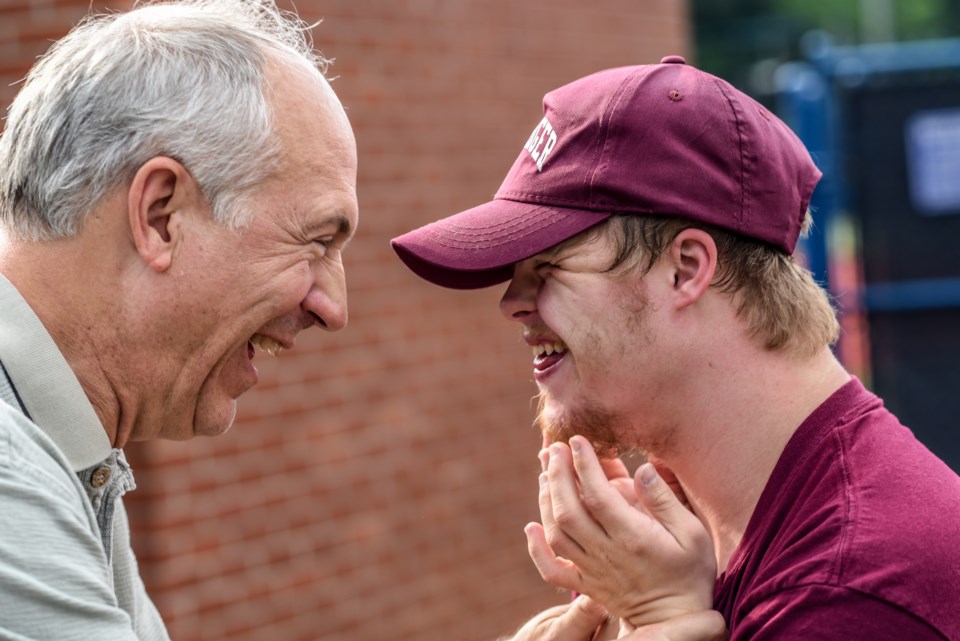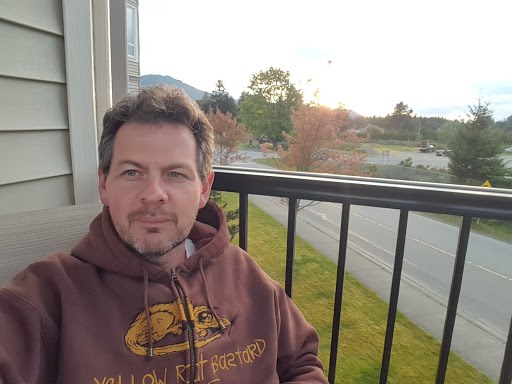 Over the weekend it was, as always, my privilege to publish some thoughts in Faith Forum under the title ŌĆśFinding God is not as hard as you might thinkŌĆØ.
Over the weekend it was, as always, my privilege to publish some thoughts in Faith Forum under the title ŌĆśFinding God is not as hard as you might thinkŌĆØ.
IŌĆÖve been grateful to those in my own faith community of The Anglican Church of St John the Divine who responded with encouragement to the ŌĆśthinking out loudŌĆÖ that makes up such articles, as well as those who on social media have shared, replied, and offered thoughtful reflection on what I wrote. One response, however, has particularly stuck with me, asked at the social time following our Church service on Sunday ŌĆō ŌĆ£I really liked what you said about finding God, but what I really want to know is how to have a relationship with God.ŌĆØ
Now thereŌĆÖs a challenge. I mean, what is a ŌĆśrelationship with GodŌĆÖ to begin with? And why would anyone want one? And what would that mean? Do you get to go out to the cinema together, or take a trip to Salt Spring for the day? Do you have to go to Church, or synagogue, or Mosque, or Gurdwara, or Temple, or wherever, together? Is there a cake?
Flippant responses, I know, and IŌĆÖm not trying to deflect from the importance of the question, nor from how important this question of relating to the Divine is to many people both those within and without the boundaries of any form of institutional religion. I do believe, however, that we have to begin by asking exactly what we think a relationship with God is. I suspect that many people think in terms of rules to follow, and certain ways of dressing/behaving/eating ŌĆō but these arenŌĆÖt signs of a relationship with God, they are, I believe, signs of either a desire to be in relationship with God, or an expression of what that relationship means.╠²
I relate to God through the stories, traditions, rituals and teachings of the faith community of which I am a part ŌĆō the Christian tradition, and in particular that expression which is Anglicanism. It isnŌĆÖt a perfect expression, and the institution of the Church is often a disappointing, painful, and at worse destructive, one. But the community of which I am part, roots itself in the stories of faith handed down from our ancestors, and from the early Church of two millennia ago, and back into the history of the Jewish faith, and seeks to live and interpret those stories for today. In this way I find language to talk about God, and to understand a little of how I believe God opens Godself to me, and to all, and reaches out in love to everyone. Others may find that interpretation in different faith traditions, and in other places of spiritual and social connection. I am convinced that there is not only one way to understand or meet God, and IŌĆÖm suspicious of any group that claims to have exclusive rights on how to talk about or bring others to meet God!
For my part, I am most aware of sharing my life with the Divine when I am sharing my life with others ŌĆō this relationship can be found in the sacred meal of Holy Communion; in sharing bread and wine with all who come to our church community. ItŌĆÖs when we sit in silence together in our lunchtime meditative Eucharist, itŌĆÖs when we gather for Communion on a Wednesday morning before breakfast, or when we meet in book groups and discussions, and as staff, or a Parish Church Council. Likewise itŌĆÖs when we have social events:╠²╠²jazz evenings with our friends from the Cathedral, barbeques and potlucks, musical evenings, coffee time.╠²
But this isnŌĆÖt just a ŌĆśchurchŌĆÖ experience - itŌĆÖs also as I spend time wandering around Mason Street and Pandora Avenue, where our community is situated, and meet all kinds of people; itŌĆÖs as I spend time at Dance shows with Sabina, my wife; itŌĆÖs when chatting in the local pub with friends; itŌĆÖs singing at Karaoke on View St; itŌĆÖs time at Theology on Tap discussing deeper issues of faith and living; itŌĆÖs helping move chairs to set up for a meeting; itŌĆÖs taking part in the Pride Parade in Victoria, or on Salt Spring Island (as I did for the first time this year, it was amazing), or supporting my wife in her new role as a politician.╠²╠²All this and more reminds me that when we live in compassionate relationship, open to one another and growing through encounter, we are in relationship with the Divine. If youŌĆÖre the type that likes a Bible quote to back this up, when Jesus was asked the greatest, most important, part of the spiritual law he responded with (and IŌĆÖve said this often before) ŌĆ£The first commandment is love God with all your heart, soul, strength, mind, and the second one is like it, love your neighbour as yourself.ŌĆØ In the act of loving our neighbour we are loving God, and in the act of loving and taking care of ourselves, we are loving God also.
It isnŌĆÖt by any means the only way of knowing and relating to the Divine ŌĆō a walk along Dallas road, going out on the canoe on Cadboro Bay, sitting on the Ferry through the Gulf Islands to 91įŁ┤┤ all allow me to stop, pray, take time, and seek perspective on life which, to me, is an encounter and growing in relationship with God. Times of silence, with no distractions give me a chance to be alone with God just as I can spend time sitting in companionable silence with any friend. An evening with a good book, enjoying a beautiful piece of music, or a concert from the Victoria Baroque Society (which is fortunately located at St JohnŌĆÖs!), a wonderful theatrical performance, dance, or movie, all give opportunity to open myself to the Divine flow and seek meaning in my journey.
But being in community reminds me that this whole enterprise is not just about me. ItŌĆÖs about all of us being made in the image of God, and that in, even the most unexpected, the Divine spark is present. I do believe that the challenge of being in community, as well as its joys, is part of how we encounter and relate to God ŌĆō and the calling to love even those whom society considers to be without value, or who are struggling with mental health or addiction issues, who are not immediately attractive, who are difficult, is part of learning to not just see God, but encounter, and be in relationship, and be transformed by the Divine.
A relationship with the Divine is, in the Christian tradition, not only about what I gain (peace, a sense of hope and love, and being loved, a move towards wholeness and healing, amongst other things) but about what I am called to give to the world ŌĆō to be a person of integrity, standing for justice, speaking out for what is right, being a part of caring for the world, of caring for the climate, of caring for other, to work together with others for equity and that which is right, to welcome all to be a part of community without any barriers, to love even those who we are told are unlovely and unlovable. Jesus called this ŌĆśdiscipleshipŌĆÖ, which comes from the same root as ŌĆśdisciplineŌĆÖ ŌĆō just as we must make time for others when we are in relationship with them, just as we learn to listen and be changed by our friendships, our partnerships, our family relationship, so being in relationship with the Divine is about listening, being open, finding how God speaks to us, and being willing to be transformed in the process.
And if we are seeking relationship with God, we can be confident in one thing above all ŌĆō we are all loved, wholly, completely, utterly. Knowing ourselves loved is the most liberating and exciting thing that any of us can experience. We can learn about that when we are in a relationship with others in community, and when we look around at all that there is and realise that the air we breathe, the sun, the sea, the sky, the mountains, trees, and even the dirt under our feet is a gift, freely given by the Divine who loves us and welcomes us into partnership in caring for this wonderful world.
 The Ven. Alastair McCollum╠²is Rector of St. John the Divine Anglican Church in Victoria and╠²Archdeacon, Diocese of Islands and Inlets.He has a passion for the Gospel, motorbikes and bike culture, worship, philosophy, theology, guitars, single malt whisky, real ale, cinema and all things French.╠²You can find Alastair at the╠²church website:╠²╠²and╠²on his blog:╠²
The Ven. Alastair McCollum╠²is Rector of St. John the Divine Anglican Church in Victoria and╠²Archdeacon, Diocese of Islands and Inlets.He has a passion for the Gospel, motorbikes and bike culture, worship, philosophy, theology, guitars, single malt whisky, real ale, cinema and all things French.╠²You can find Alastair at the╠²church website:╠²╠²and╠²on his blog:╠²
You can read more articles on our interfaith blog, Spiritually Speaking,
Photo of two men by╠²╠²┤Ū▓į╠²
╠²
╠²


